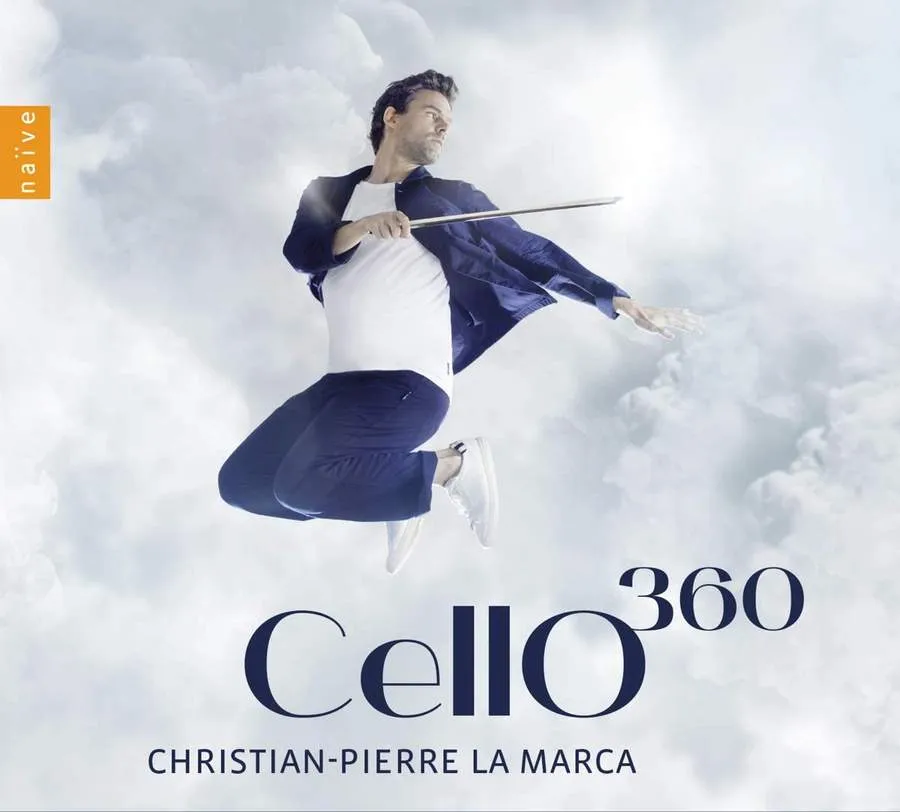
Cello 360 Works by Casals, Chaplin, Dowland, Dutilleux, Grieg, Ligeti, M Marais, Purcell, Rameau, Saddier, Sainte Colombe the elder, Telemann, et al. Christian-Pierre La Marca (cello) Naïve V7260 73:40 mins
Here’s a project for the pandemic era of solitude and separation, recorded in the summer of 2020. What can a cellist achieve alone? A polyphonic, technicolour panorama in Christian-Pierre La Marca’s idiosyncratic tour through the distant and immediate musical past. His sequence swerves Bach, Abel and Britten in favour of Marais, Telemann, Grieg, Dutilleux, Escaich and Chaplin.
Stand-out among the performances are those works which revel in the full potential of the solo instrument. One such is Ligeti’s powerful 1953 solo sonata (a work that now seems oddly prescient of Britten’s Third Suite, though it wasn’t premiered until after his death). La Marca’s is a consummate reading, expressing the deep melancholy of its ‘Dialogue’, and delivering a dazzling ‘Capriccio’. Dutilleux’s brilliantly articulate Trois Strophes sur le nom SACHER give us a choir of diverse cellistic voices, from ghostly breath, percussive chatter to pure incandescence: La Marca achieves them all with stylish fluency. He describes himself as an ambassador for Thierry Escaich’s fiery Cantus (2005), and he inhabits its teetering architecture with compelling imagination. This piece deserves to become as popular as Sollima’s crowd-pleasing Lamentatio.
Less successful are his forays into the gamba repertoire. While he dashes off a delightful Allegro vivace from Telemann’s Suite TWV401, and recreates a pleasing consort for Dowland’s Lachrimae antiquae, the pieces by Marais, Rameau and St Colombe don’t quite take flight, despite his use of a baroque bow. Song arrangements like Grieg’s ‘Solveig’s Song’ and Chaplin’s ‘Smile’ have a curiously drifting quality: perhaps a singer does need an accompanist after all.
Helen Wallace